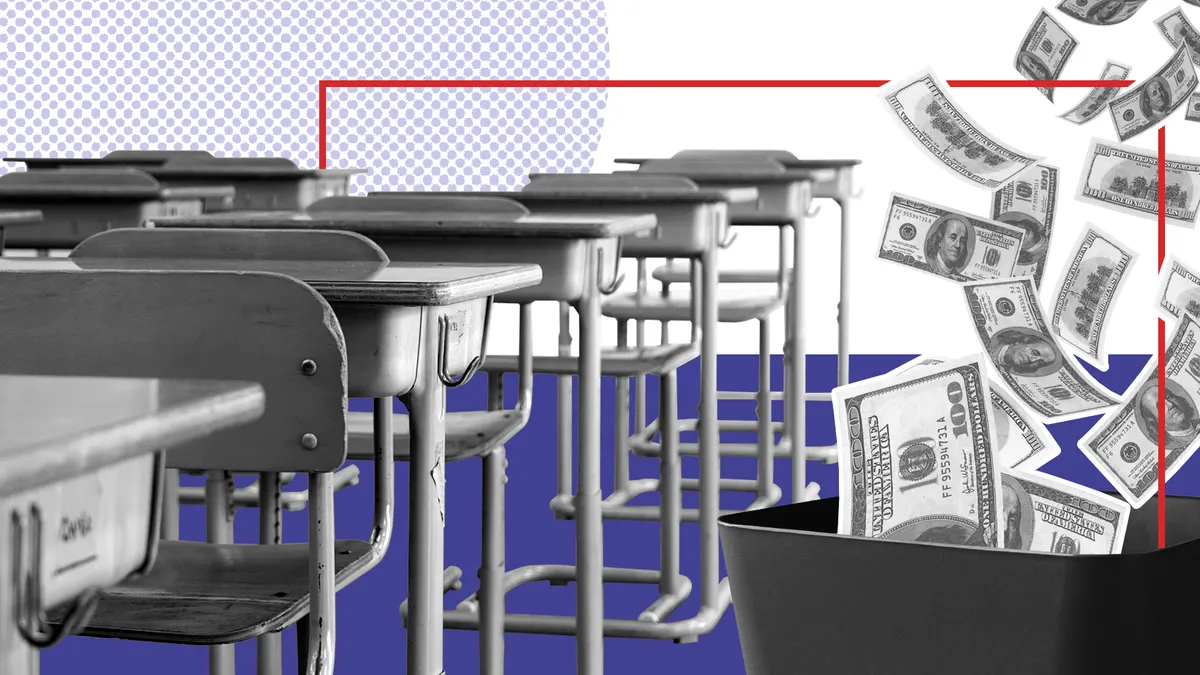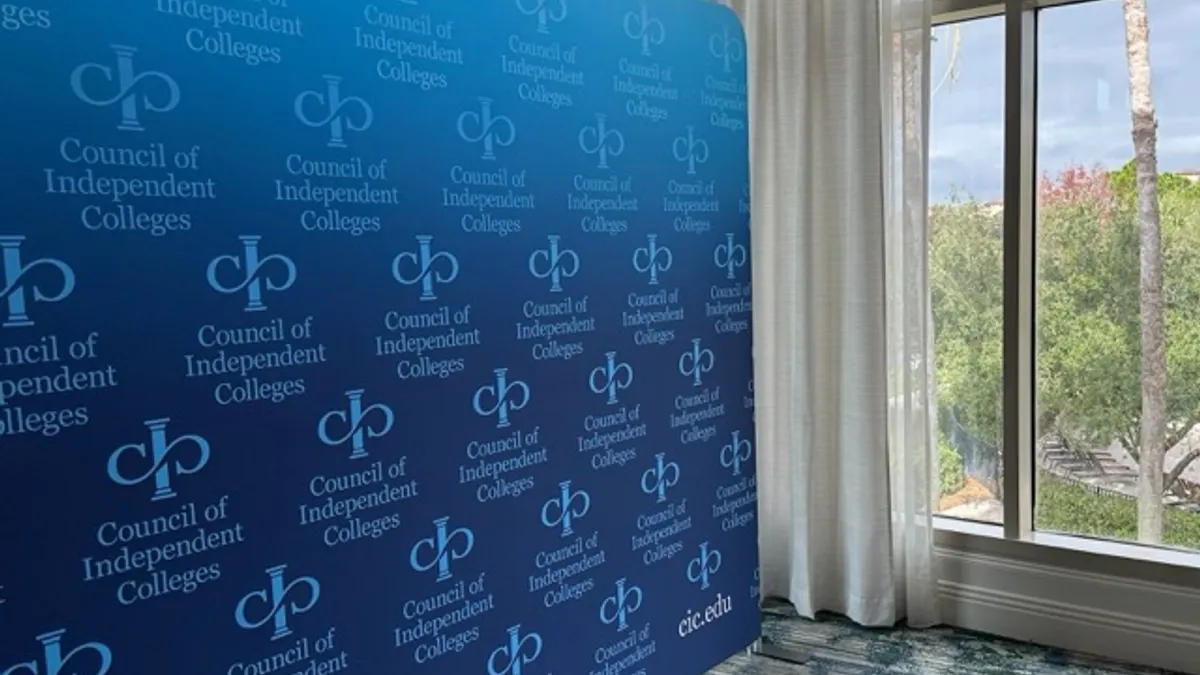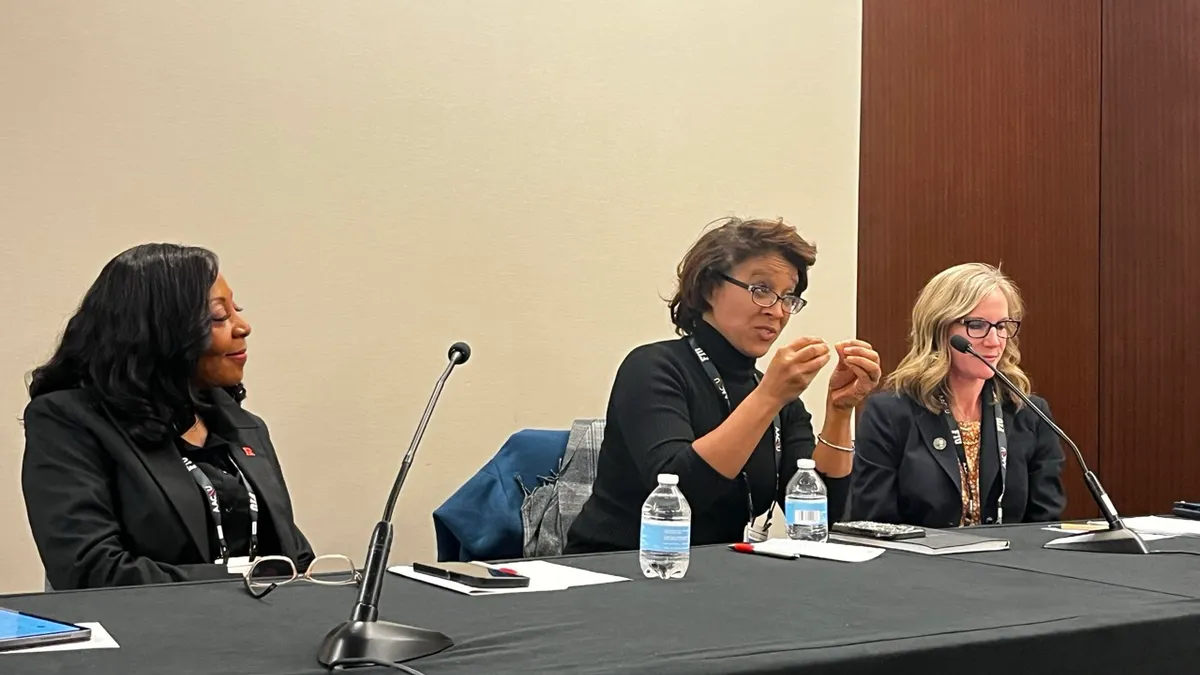This story is part of a series about changes in how colleges use admissions tests. Find the rest here.
When the coronavirus shuttered K-12 schools nationwide, it also closed down standardized testing posts at a critical time of year for the exams. As a result, many students missed out on taking the ACT in the spring, cutting into the nonprofit's key revenue stream and leading to staff layoffs and furloughs.
ACT came under fire, however, for how it communicated with the public about the canceled test dates and for a perceived focus on preserving its bottom line over addressing students' struggles.
With little explanation, ACT's chief executive, Marten Roorda, stepped down abruptly last month, being replaced with Janet Godwin, a veteran of the organization, who most recently served as its chief operating officer. During Roorda's tenure, ACT made several investments with the intent to diversify its business as an ed tech company and to enable it to start working with students before they reach high school.
Godwin talked with Education Dive about some of the criticism ACT received and the challenges the pandemic has presented.
This interview has been edited for clarity and brevity.
EDUCATION DIVE: What are some of the problems the pandemic has caused for ACT and how is the company adjusting?
JANET GODWIN: The biggest challenge is school closures. We had to cancel our April test date entirely. That was right in the middle of the school closures. There was really no ability to run a test event. We had a test event Saturday, June 13, and it was successful but small.
We tested in 45 states. We contacted every test center multiple times and talked them through whether they could be open — and if they could be open, what the guidelines and protocols would be for safe test administration. We put together a protocol for administering the test, obviously in socially distanced conditions, with hand sanitizer, instructions around sanitizing and cleaning the facilities, the flow of students through the site to ensure social distancing, and all the kinds of things you see in restaurants and grocery stores now.
We are seeing a fairly significant increase in capacity for our July test date and we're sort of doing the same thing — a massive outbound call campaign to talk to every site and understand what capacity they have, and make sure we're able to offer the test in a very safe, socially distanced manner following Centers for Disease Control and Prevention guidelines.
Do you have an estimate of how many students weren't able to take the test?
GODWIN: Hundreds of thousands of students will have not had the opportunity to sit for the ACT or SAT. That's why we were so incredibly focused on opening up and learning, as we did in June, and then expanding our capacity in July.
Into September, there will be a lot of pent-up demand because students want to test. They're anxious to get into their college and career planning cycle and to get the insight they can glean from an ACT score. The scores have a great deal of value for students and the demand is definitely there.
Did the testing cancelations represent a major revenue loss for ACT?
GODWIN: Certainly, I would say our operations were impacted. We're like so many other companies whose operations were disrupted with closures and different protocols. We're working our way through the impacts and making decisions as an organization so we can stay healthy and strong and ready to grow into the future.
Is the test-optional movement concerning you?
GODWIN: We 100% support the decisions colleges make around their admissions policies. Certainly in the case of COVID, I think the intentions are good. They're trying to relieve stress from students and families.
Students want a score to be part of their admissions profile. Students are looking for the ability to stand out and to demonstrate what they accomplished in high school. Test scores help to do that, even more than grades may, especially when you think about what transcripts will be looking like after this spring.
Schools were closed and districts across the country made different decisions about how they handled grades. In some cases, it was pass/fail. In some cases, districts chose to waive certain graduation requirements. There's not going to be a very good, comparable view of a transcript from spring 2020 because of the variability brought about by COVID. Students are recognizing that and seeing that an admissions score is the gold standard of what they've achieved.
Can you talk about your predecessor's departure and the thinking behind the leadership change?
GODWIN: We don't comment on personnel transitions. I will say, though, that Marten assembled a really fantastic leadership team and he also developed a strategy that we are continuing to stay on course with. Historically we have been an assessment company. However, the strategy that evolved under Marten's leadership was to be engaged with students earlier in their learning process. For many years, our thought was to begin assessing students in junior high or high school, which gives us a sense of how students are progressing toward college and career readiness. But sometimes that's a little late to get involved in a student's educational journey. Our goal is to begin engaging earlier in that learning cycle.
Marten led an effort to assemble some learning components and programs. We're very excited to start bringing those learning solutions to the market in the very near future.
How do you feel about the investments Marten made in recent years? Did it help ACT compete with the College Board?
GODWIN: The intent and rationale was less from a competitive stance but more about that mission orientation that we have to help students achieve education and workplace success. If we start engaging with students in the 11th grade, we felt like we were not having the impact we could have.
So you think the investments have panned out?
GODWIN: I do. Marten structured our organization around these learning capabilities. I'm pretty excited about our learning solutions and what we'll be bringing to the market in the short term.
How well has ACT communicated with consumers before and during the pandemic?
GODWIN: Pretty early on, we set up a website with the various resources students, educators and parents could access and some of the tools or solutions we gained from recent acquisitions. We felt good about the impact and the uses people made of those tools.
Certainly we've been trying to communicate with students, trying to find a seat for them to test.
Some of those communications have been frustrating for stakeholders. We were trying to figure out for the June test date, for example, exactly who would be open. We had last-minute cancelations at sites. We had testing coordinators at the last minute saying they couldn't test. In some cases we had to cancel because we didn't have access to enough hand sanitizer — but many factors, many reasons.
That was frustrating and difficult for students to get the word last minute. In the spirit of learning and getting better, we are building our muscle working and operating in this time of social distancing and following safety guidelines. Our goal is to be as proactive in our communication as possible, and to give students and parents as much time and information as soon as we have it. That's something we intend to improve on.
Some of the criticism around the tests — and what research shows — is that they favor wealthy and white students. How are you addressing these equity issues during the pandemic?
GODWIN: I'm not aware of the research that shows test scores are the highest for affluent students. Our research suggests that the combination of an admissions score and high school grades is the best way for students to demonstrate their ability to be successful in college.
What happens is that a high school in a high tax-rate area likely will have access to better learning materials. Likely they're paying their teachers a better salary. They likely have more diverse course offerings. Sadly, the income gap, and access to quality instruction, rigorous courses in high school, learning opportunities outside the classroom — affluent students have more access to them. Less affluent high schools won't. That's what's happening. They don't have access to the resources to help them prepare for college success.
I think that argument is a little confounding and not completely accurate.
People are going to do everything they can to help their student be successful. The opportunity gaps and the disparate income gaps we have in the U.S. are manifesting throughout the entire educational system. It's not the assessment that's biased.











